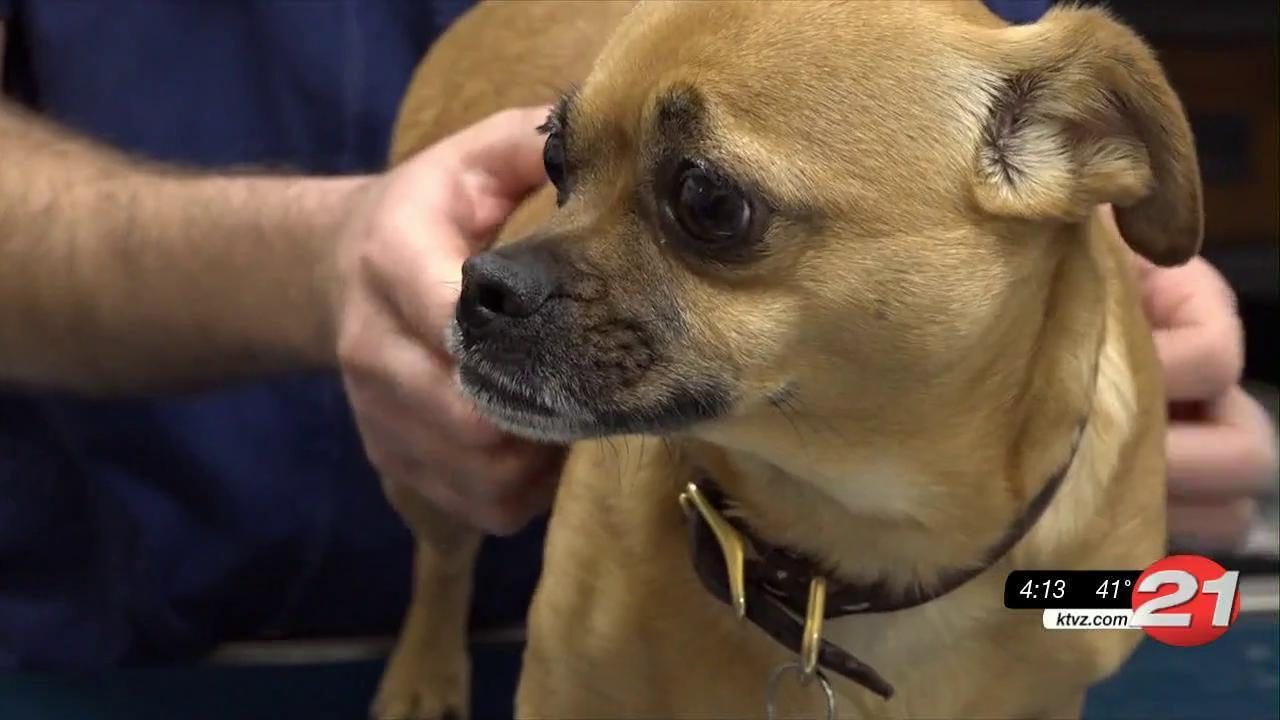Ruff Report: Affordable pet care and insurance

Is pet health insurance worth it, in the long run?
BEND, Ore. (KTVZ) -- Owning a pet is a big responsibility. They're easy to love, but they need care and attention, which can end up being pretty expensive.
"For young pets, cats and dogs primarily, we usually have an intense beginning, just like with kids and pediatrics," said Dr. Byron Maas, owner and veterinarian at Bend Veterinary Clinic. "So you're looking at vaccines, preventative care, and looking at developing a plan for what they need for their lifestyle."
Vaccines, dental work and emergency vet bills can add up, whether you have a dog or a cat. Which begs the question: Is pet insurance worth it?
Maas said it depends on what your situation is.
"It kind of depends again on the kind of breed that you have," Dr. Maas said. "If you have a breed that potentially has a lot of problems, then there's going to be some advantages to some insurance. Later on, you know statistically your pet is going to have one of the major diseases."
He said you can never predict when an accident is going to happen.
According to North American Pet Health Insurance Association Executive Director Kristen Lynch, the data they've seen shows pet insurance is the fastest-growing form of insurance in the country.
"You know, it's on the pet owner to look and ask themselves, 'What can I afford? What are some of the conditions that my particular breed has?,'" Lynch said. "You know, talk to your vet and ask them what those are, and what it would cost to treat them if something happened.'"
In 2018, about 2.43 million pets were insured at year-end in North America. That's a 17.1 percent increase from 2017.
"Some policies include embedded wellness, so they'll have vaccinations and things like that covered, but some don't," Lynch said. "You get what you pay for, and you can get more comprehensive coverage that does include some of those things."
In 2018, the average annual premium for accident and illness insurance for dogs cost about $566. For cats, it cost $354. This means that per month, the average premium for dogs cost $47, and for cats it cost $29.
Though pet insurance is an option, it might not be for everyone.
John Maddigan with Plateau Veterinary Hospital and Orthopedic Clinic said the best thing is to find out where you can get affordable care already.
"We do a vaccine clinic every month at Bend Pet Express, and we get a lot of people there, because it's a little less expensive," Maddigan said. "A lot of people that come there really don't have a regular vet."
And there are other affordable options for routine vaccinations and exams. The Bend Spay and Neuter Clinic, through the Humane Society of Central Oregon, offers wellness services every Saturday, which include low-cost vaccines, micro chip, and de-worming. Low-cost spay and neuter services are offered three times a week.
"We also have our spay and neuter assistance program, a SNAP voucher program is what we call it, and if you are receiving any type of government assistance, you can buy one of these vouchers," said Humane Society of Central Oregon Vice President of Operations Karen Burns. "It's an extremely low-cost, and you can take them to a select amount of vets in the community."
When it comes to pet insurance, Burns said, it pays to do your research.
"Insurance, you know, it's kind of one of those Catch-22s," said Burns. "You pay for it, but when it's there when you need it, it's invaluable."
Ultimately, the decision to have or not have insurance is based on what you think is best for you and your pet.
Maddigan said, "The most affordable thing pet owners can do is just do the routine procedures. Get them spayed and neutered, and then just do routine vaccinations and exams."
He said it's as simple as keeping them active and feeding them properly.
"Walk with your dog, every day," Maddigan said. "It's good for you, and it's good for your dog."